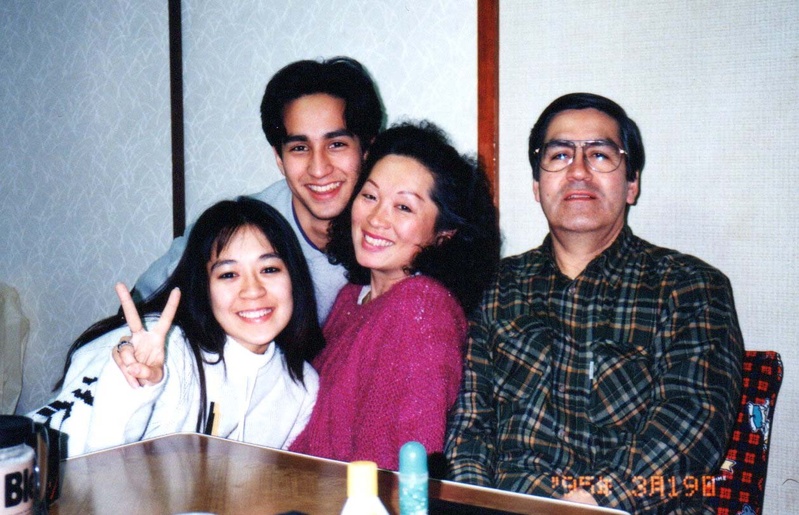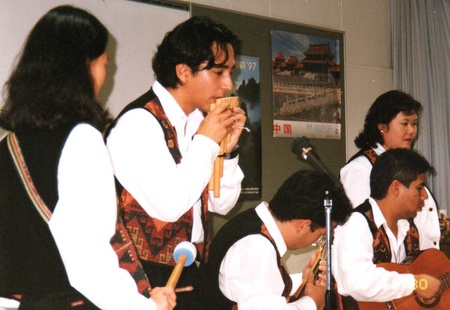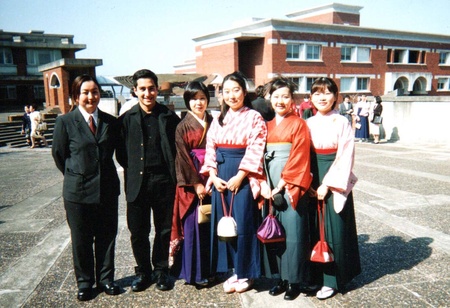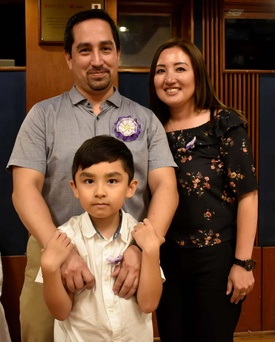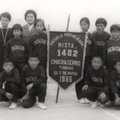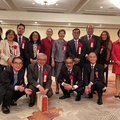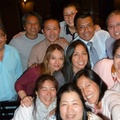Jorge Vargas Tsuruda's first experience in Japan was amazing. He was a teenager (still in school) and had traveled to the country with his sister, also a schoolgirl, to visit their parents, both dekasegi.
He thought it would be a vacation, but it was two months of work. They didn't even have time to acclimatize. They arrived on a weekend and on Monday they were already working. It was “a really crazy thing,” he remembers.
The first shock was the harsh Japanese winter. The second was to squeeze his body to earn his bread in the factory of a country that was completely foreign to him (in language, culture, food, everything), especially for a boy with no work history.
Their parents put them to work following logic. What would a couple of teenagers do while their parents were at work? Watching TV in a language they didn't understand (it was the early 1990s, there was no internet)? Go for a walk in a small town where there was nothing to see? Being locked up all day in the apartment doing nothing?
After their school holidays, the brothers returned to Peru to resume their studies.
For Jorge, that first experience was an appetizer of what would come later: 12 years in Japan in which he was a worker, nihongo student, university student, performer, aikidoka, loader of heavy machines, host in cinemas; where he lived in big cities and in a mountain, he was mistreated by Japanese people unaccustomed to interaction with foreigners and warmly welcomed by open-minded Japanese teachers, he landed single and monolingual and left married and bilingual...
FROM FACTORY TO SCHOOL
When Jorge's older sister finished high school in Peru, she traveled to Japan to join her parents. A year later, he graduated from school and followed in his footsteps. He was 17 years old.
He worked in an auto parts factory. It didn't last long, about nine months. It wasn't his thing. “Being in a factory all day doing the same thing...There were other Peruvians, but they were older, there were almost no people my age. They were all accustomed to that pace of life, kind of resigned: going early, doing their day, "If you could work overtime, save money, save as much as you could or send it to Peru. Everyone had that mentality. I didn't like that idea because it seemed very simple, very sad," he says.
For him it was a sea of boredom. Without forgetting the ugly treatment. When the Japanese taught him how to do something and he didn't do it well, “they got upset and threw things at you, they ripped things out of your hands.”
Fed up, he quit his job, but not to go to another one. He moved to Osaka to study at a Japanese language school. He didn't learn it at the factory, so he arrived at zero.
It was a brutal change (in the best way).
To begin with, the treatment was better. The teachers were understanding and, in general, people in Osaka were more open.
The school was a mini United Nations. The majority of students came from China, Taiwan and South Korea. There were also students from Mongolia, Malaysia, Singapore, Vietnam, India, Spain, Argentina, etc.
Almost all of them studied Japanese to get to a university in Japan. They were young foreigners with ambitions, full of energy, a vibrant environment, very far from the musty factory atmosphere.
School also meant independence: living alone, on your own, a qualitative leap to adulthood.
In the academic field, in addition to studying nihongo itself, he took courses such as mathematics, history and science in Japanese.
Jorge liked school, but he didn't have a plan. Learning Japanese and not being in a factory was enough for him in the meantime.
THE UNIVERSITY, ANOTHER WORLD
The plan began to be outlined shortly before leaving school. There they not only taught you Japanese, they also prepared you for the future. What career do you plan to follow? Which one best suits your inclinations or abilities? Based on this, which universities would fit your interests?
Thanks to the guidance of his professors, Jorge found his career: international relations. Three universities were on his menu of opportunities and he entered Shizuoka.
After passing the noryoku shiken, the Japanese language proficiency test, he passed the written exam and the oral interview at the university.
His first great challenge as a university student was the language. Yes, he had studied it for two years and confirmed his knowledge of noryoku shiken, but he realized that he had not made the most of his period at the Osaka school. He had assimilated the theory well, but had not practiced nihongo. In classes everything was Japanese, but as soon as they finished he returned to Spanish with his Spanish-speaking classmates. And sometimes he ventured into English to communicate with other students.
At the university there were no other Spanish speakers and the requirement was capital. The library became his refuge after classes to try to better understand the lessons and he walked up and down with several dictionaries (Japanese-Spanish, Spanish-Japanese, kanji).
The existence of a club of students of the degree, both Japanese and foreign, helped a lot, where the former had the opportunity to learn about the cultures of the countries of origin of the latter, and the latter had the opportunity to practice their Japanese with them and ask them questions about the courses.
It was a valuable cultural, academic and social space that encouraged exchange between each other.
Cultural immersion deepened with food festivals, when everyone mixed together not only to try each other's food (Chinese, Korean, Singaporean, etc.), but also to collaborate in its preparation. He fondly remembers a Malaysian curry dish with coconut milk.
His university years not only opened the doors to other cultures. Without looking for it, he brought it closer to his.
One day he found out that there was a Peruvian, a distant relative, who was studying at another university in Shizuoka. They began to meet and his relative invited him to join an Andean music group with some Japanese.
Jorge didn't know anything, but the Japanese taught him how to play the panpipe. He laughs when he remembers it.
Thanks to this relative he also started cycling. And in a big way: one summer they both biked from Shizuoka to Hokkaido (although some sections were covered by train).
“That trip was crazy,” he recalls. The experience marked him so much that when he finished university he decided that just as he had cycled to the northernmost prefecture of Japan, he would now go to the southernmost one, Okinawa.
He came to Wakayama, where he never imagined he would spend the next two years of his life.
AIKIDO IN THE MOUNTAIN
During his trip to Okinawa, every time he arrived at a new place, Jorge asked its residents what places they recommended to visit.
In Wakayama he was told that there was a dojo located on a mountain where aikido was practiced. He had had a brief experience with this sport, so he was encouraged to go. He liked it, they invited him to train and he stayed there to live.
He led a disciplined and austere life, between practice and work, which began around 5 in the morning, when he and his colleagues woke up to clean the bathroom.
I trained in the morning, did arubaito in the afternoon and at night I practiced aikido again. About three months later, he left the dojo to move to a ryokan, but continued to go to training. And so two years passed.
Jorge lived day to day, spontaneously. What came out, came out. He graduated from university without knowing what to do next and while he was deciding what direction to take with his life, he made Arubaito for a few months to finance his trip to Okinawa.
We already know that he did not reach Okinawa, but in Wakayama he achieved something more important. Subjected to the rigor of practicing a martial art, far from the hustle and bustle of big cities, immersed in the silence of the mountains, he reflected deeply on his life and that was the first step toward reconciling with his parents.
He had distanced himself from them when he was in college. They cut off communication after a strong fight about their future. In the dojo they instilled in him the importance of respect for parents, elders, ancestors. The teachings resonated with him and little by little he began to regain his relationship with his parents.
Jorge's post-Wakayama life was characterized by a wide variety of jobs: he worked in restaurants, in a cinema complex where he had to welcome the public and announce the films that would be shown, in a company that provided services to foreigners ( sale of tickets and computers, intermediation for the purchase of cell phones and the signing of contracts with Japanese operators), etc.
He also got married and with his then wife they planned to return to Lima to try for a place at the Diplomatic Academy. He could not due to the impossibility of validating his studies at the University of Shizuoka in Peru. But if one door closed, another opened: the Peruvian-Japanese Chamber of Commerce and Industry, where he has worked since 2007 (and as general manager from 2014).
JAPAN, ADOPTIVE HOMELAND
Jorge Vargas lived 12 years in Japan. How do they look from a distance? “It has been a very crazy thing. When I was here in Peru I never thought I was going to go to Japan. What's more, I didn't want to know anything about Japan,” he responds.
The reason? “I had a certain aversion because my maternal grandmother viewed my father with bad eyes (for not being Nikkei). It was only when my sister and I were born that my grandmother became a little closer to the family.”
Her grandmother's perception changed many years later, when the whole family was already in Japan. They invited her to visit them and by then “she already considered my dad well. She saw that he was a different type of person, not what she imagined. He had a very bad image of Peruvians, he always spoke very negative things about Peruvians. "I thought that like my grandmother they were all Japanese and I didn't want to know anything."
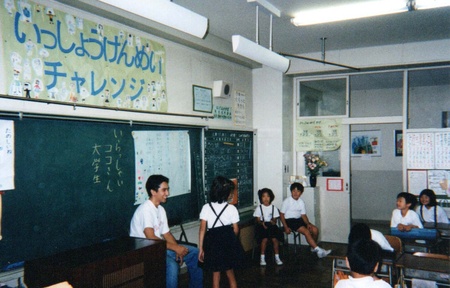
The contrast between his paternal and maternal families only reinforced that impression: “While my father's family (he is from Cajamarca) was very happy, getting together, seeing each other all the time, having parties, all very happy, of jokes, in my mother's house everyone always stopped fighting, because one had married a Chinese man, the other had married a black man... In my mind it was: all Japanese are like that and all Peruvians are like that. So. “I stayed with that image of a boy.”
This is how he arrived in Japan, a country he hated and ended up loving. “When I arrived in Japan, at first I was like 'I don't want to be here, I don't want to know anything about this country, I don't want to know anything about its culture, its language', and in the end I ended up adapting, adopting that culture.” .
He feels very grateful to Japan. It helped him grow as a person, gave him the language that today is his means of livelihood and allowed him to better understand his parents, the sacrifice they both made to offer a good future for their children. They always supported him in his studies at Nihon (economically and morally) and even when he faltered and the idea of leaving the university was on his mind, they convinced him to continue. “I have a lot to thank them for,” he says.
Jorge also highlights having had, like few others, the opportunity to enrich his life by occupying various positions in Japan: he was a worker, an office worker, a student and, some time later, an intern (about this he says: “Totally different (compared to his dekasegi stage). They treat you as if you were, not a god, but much better. With much more respect, you feel very well cared for. The way they talk to you is different.
Japan also brought him closer to his Nikkei identity, although not without bumps in the road: “I sometimes felt a little strange in Japan when there were other Peruvians because those who were Nikkei did not see me as Nikkei. And those who were Peruvians saw me as Peruvian, but I didn't feel like them because many had purchased surnames. So I thought, inside me, 'I'm not part of your group because I am Nikkei', but when I was with the Nikkei I felt 'I'm not part of your group because you don't see me as Nikkei'. A very rare thing.”
In Peru he built a relationship with the community. It was not easy. He remembers that at the beginning, when he was in a Nikkei environment and he introduced himself as Jorge Vargas, they looked at him as if to say “what is he doing here?” But when he added Tsuruda, the surname that accredited him as a Nikkei, the gaze of the others changed, it became welcoming, complicit, you are one of us.
Therefore, as a way of rebelling against prejudice, for many years he resisted mentioning his maternal surname when identifying himself. It was just Jorge Vargas. Now, with the internal revolt quelled, at peace with everything and with a full life, he is Jorge Vargas Tsuruda.
© 2023 Enrique Higa Sakuda


